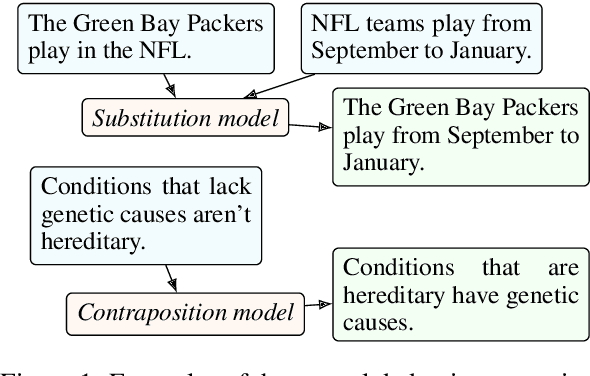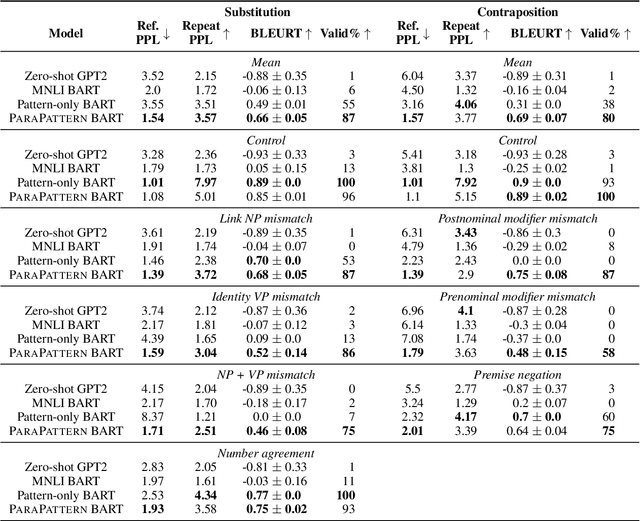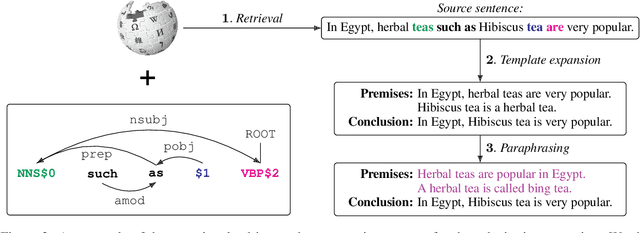Flexible Operations for Natural Language Deduction
Paper and Code
Apr 18, 2021



An interpretable system for complex, open-domain reasoning needs an interpretable meaning representation. Natural language is an excellent candidate -- it is both extremely expressive and easy for humans to understand. However, manipulating natural language statements in logically consistent ways is hard. Models have to be precise, yet robust enough to handle variation in how information is expressed. In this paper, we describe ParaPattern, a method for building models to generate logical transformations of diverse natural language inputs without direct human supervision. We use a BART-based model (Lewis et al., 2020) to generate the result of applying a particular logical operation to one or more premise statements. Crucially, we have a largely automated pipeline for scraping and constructing suitable training examples from Wikipedia, which are then paraphrased to give our models the ability to handle lexical variation. We evaluate our models using targeted contrast sets as well as out-of-domain sentence compositions from the QASC dataset (Khot et al., 2020). Our results demonstrate that our operation models are both accurate and flexible.
 Add to Chrome
Add to Chrome Add to Firefox
Add to Firefox Add to Edge
Add to Edge